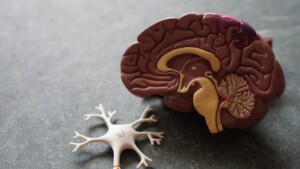UNRAVELING THE COMPLEXITIES OF MEMORY EFFECTS AFTER TRAUMATIC BRAIN INJURY

Traumatic brain injury (TBI) can have a profound impact on a person’s life, affecting various cognitive functions. Among these functions, memory is one of the most commonly affected domains. While every TBI case is unique, understanding the memory effects following such an injury can shed light on the challenges faced by individuals on their road to recovery. In this post, we will delve into the intricacies of memory impairments after a traumatic brain injury and explore the potential factors that influence their manifestation.
Types of Memory Affected
Traumatic brain injury can disrupt different types of memory, including:
Short-term Memory: Individuals with TBI may struggle to retain new information or experiences for a brief period. They might find it challenging to remember recent conversations, events, or instructions.
Long-term Memory: TBI can also impact long-term memory, making it difficult for individuals to recall past events, facts, or personal experiences. This can range from mild difficulties to significant gaps in memory, affecting both episodic (specific events) and semantic (general knowledge) memory.
Working Memory: The ability to hold and manipulate information in the mind over short periods is often impaired. This can hinder problem-solving skills, attention, and multitasking abilities.
Factors Influencing Memory Effects
Several factors contribute to the manifestation and severity of memory impairments following a TBI. These include:
Severity and Location of Injury: The extent and location of the brain injury play a significant role. Injuries to the frontal lobes, temporal lobes, or hippocampus, which are closely associated with memory functions, can have a pronounced impact.
Primary and Secondary Effects: The primary injury occurs at the moment of impact, while secondary effects may develop over time due to swelling, bleeding, or biochemical changes in the brain. Secondary effects can worsen memory problems.
Post-Traumatic Amnesia (PTA): PTA is a common occurrence after TBI and involves a period of disorientation, confusion, and memory loss immediately following the injury. The duration of PTA can provide insights into the severity of memory impairments.
Emotional and Psychological Factors: Emotional distress, anxiety, and depression following a TBI can further exacerbate memory difficulties. These factors can interfere with attention, concentration, and motivation, all of which are essential for effective memory encoding and retrieval.
Treatment and Rehabilitation
Managing memory effects after a traumatic brain injury requires a comprehensive and individualized approach. Some strategies that may be employed include:
Cognitive Rehabilitation: Rehabilitation programs designed to enhance memory skills through targeted exercises, techniques, and compensatory strategies.
External Memory Aids: Utilizing tools such as calendars, reminder apps, written notes, and organizational systems to help individuals with memory deficits.
Emotional Support and Mental Health Care: Addressing emotional and psychological factors through counseling, therapy, and support groups to improve overall well-being and indirectly enhance memory function.
Lifestyle Modifications: Implementing healthy lifestyle choices such as regular exercise, balanced nutrition, sufficient sleep, and stress reduction can support brain health and optimize memory abilities.
Conclusion
Memory impairments following traumatic brain injury can significantly impact an individual’s daily life and overall functioning. Understanding the complex interplay of factors influencing memory effects is crucial for designing effective treatment plans and providing appropriate support. By combining targeted cognitive rehabilitation, external memory aids, emotional support, and healthy lifestyle adjustments, individuals can strive for optimal recovery and improved quality of life in the face of memory challenges.
Take the first step toward providing your loved one with the exceptional care they deserve. Contact us today at (281)892-1400 to schedule a personalized tour and learn more about our memory care and assisted living services. Our friendly team is ready to answer your questions and guide you through the process of finding the perfect caregiver at Kingwood Memory Care & Assisted Living. Together, we can create a supportive and nurturing environment where individuals with memory issues can thrive and lead fulfilling lives.
